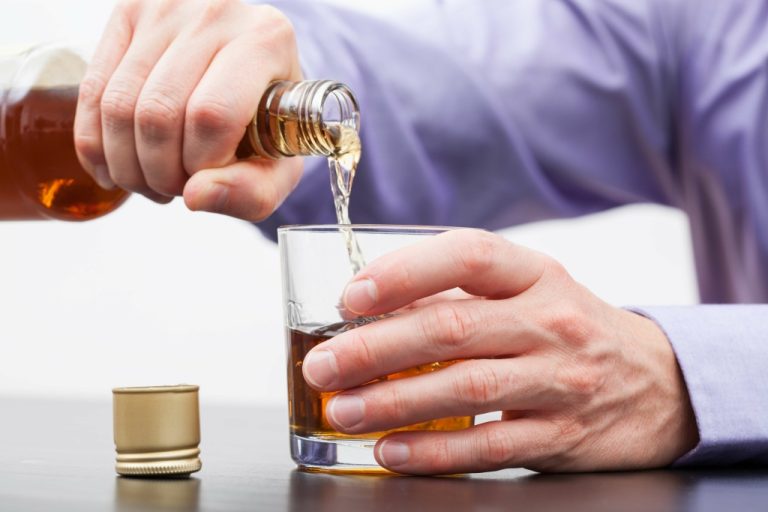And it is individualized – no one person shares the same recovery story as another. Finding the right treatment option can be the key to a successful recovery journey. Evidence-based guidelines can assist doctors with choosing the right treatment options. These guidelines help evaluate a patient’s clinical needs and situation to match them with the right level of care, in the most appropriate available setting.

Limits on virtual addiction treatment may soon return, making care harder to access
- Gaining the skills to avoid relapse is a necessary part of the recovery process.
- SUDs can lead to significant problems in all aspects of a person’s life.
- It may include clinical treatment, medications, faith-based approaches, peer support, family support, self-care, and other approaches.
- The evidence shows that every day, people choose to recover from addiction on their own.
What must follow is the process of behavior change, through which the brain gradually rewires and renews itself. In summary, the infrastructural landscape for treatment in the U.S. comprises multiple types of facilities, each dedicated to specific health concerns, evidencing the https://engenegr.ru/gost-r-iso-10718-2005 broad spectrum of healthcare services available to the population. As of April 2024, there are approximately 453 rehabilitation hospitals in the United States.

Stages of Recovery

The researchers in the first group, including physicians, SUD (substance use disorder) experts, medical centers, and medical circles, define recovery as a process involving clinical diagnosis, treatment, and rehabilitation (5). SAMHSA’s mission is to lead public health and service delivery efforts that promote mental health, prevent substance misuse, and provide treatments and supports to foster recovery while ensuring equitable access and better outcomes. When I was the clinical director of a hospital-based addiction treatment program in Rockland County, NY, for five years during the 1990s, I worked closely with the program’s medical director. He was a psychiatrist who was in recovery for quite a few years through a twelve-step program, although he rarely made mention of it. Addiction is a chronic, progressive, and potentially fatal disorder, similar to other chronic life-threatening conditions such as diabetes, asthma, and heart disease. However, it can be https://komps.ru/elcomsoft-system-recovery-ne-rabotaet-myshka-obzor-programm-elcomsoft-system.html treated and managed successfully through the process of recovery, allowing those with it to live long, full, and healthy lives.
Addiction Treatment Options for Drugs and Alcohol

Alcohol is a powerful reinforcer in adolescents because the brain’s reward system is fully developed while the executive function system is not, and because there is a powerful social aspect to adolescent drinking. Specifically, prefrontal regions involved in executive functions and their connections to other brain regions are not fully developed in adolescents, which may make it harder for them to regulate the motivation to drink. One of the limitations of this study was the lack of access to the full-text copies of some papers.
Then, several electronic magazines were searched to obtain the full-texts of the articles with the reviewed titles. Eventually, 34 articles matching the research objectives were selected and 5 articles mentioned in the reference sections of some of the articles were included in the study. Table 1 presents an overview of studies conducted on addiction recovery. At one of the many professional conferences on addiction that I attended, he gave a talk that focused on his personal recovery experience. During a powerful and moving presentation, he described being grateful to be an alcoholic.
Recovery Is a Process of Learning, Growth, and Healing
While people seeking recovery tend to share certain common experiences and needs, every individual has particular capacities, coping abilities, resources, strengths, interests, goals, culture, and background. These influence and help to determine the most effective pathway(s) of recovery for each person. Recovery pathways can include mutual-aid groups; professional clinical treatment; strategic use of medications; support from families and friends, and faith-based resources, among other approaches. The National Recovery Month webpage provides a host of resources that can be used to help promote the observance. Learned healthy coping was the fourth attribute of the theoretical phase of concept analysis. Overcoming dependence on substance use and coping with the issues it poses are an important aspect of recovery.
The cause of this exaggeration lies in how addictive substances change the brain. When people’s motivation to drink or use drugs becomes too high a priority in their reward center, traits stereotypically seen in addiction develop to deny and protect the alcohol and/or drug use. While treatment courts can help to open alternatives to incarceration for Veterans, it’s still important to begin the process of finding a http://lol54.ru/music/mp3flac/140042-winter-dance-party-2014.html rehab program that can meet your needs.
![]()
To address the fentanyl crisis, greater access to methadone is needed
- He risked the last of his money with a crooked investor and lost everything.
- Many organizations, however, are small and not as familiar with how to collect and analyze data.
- The individual’s viewpoint on his/her addiction forms the basis for this model, which reflects the spiritual viewpoint of the Alcoholics Anonymous while covering a major dimension of recovery (12).
- In addition, immediately attending or resuming group meetings and discussing the relapse can yield much advice on how to continue recovery without succumbing to the counterproductive feeling of shame or self-pity.
Hogue’s HEAL-funded research aims to create tools for providers, youth, and their families to find lasting recovery by targeting three concrete principles. Various barriers have made family involvement in services for substance use disorders the exception rather than the rule. In many cases, providers don’t have training or tools to know what to do. American Addiction Centers operates treatment centers throughout the country. Reach out to connect with one of the knowledgeable admissions navigators—many of whom are in recovery themselves. They can answer your questions, explain your options, and help you begin your recovery journey.
But to others around them, it may be very clear that substance use is costing more than just money. Over time, substance users move into a contemplation stage and begin to consider the possibility that use has some negative consequences. Genetics plays an important role in conferring vulnerability to addiction. Genetic factors influence how substances are metabolized and experienced. Such biological differences can influence whether substance use continues and increases, remains “social” and occasional, or does not occur at all. In the early stages, however, those more genetically vulnerable to addiction are unaware of the risky path they are on; their experience is merely of a memorable and highly desirable new discovery.

